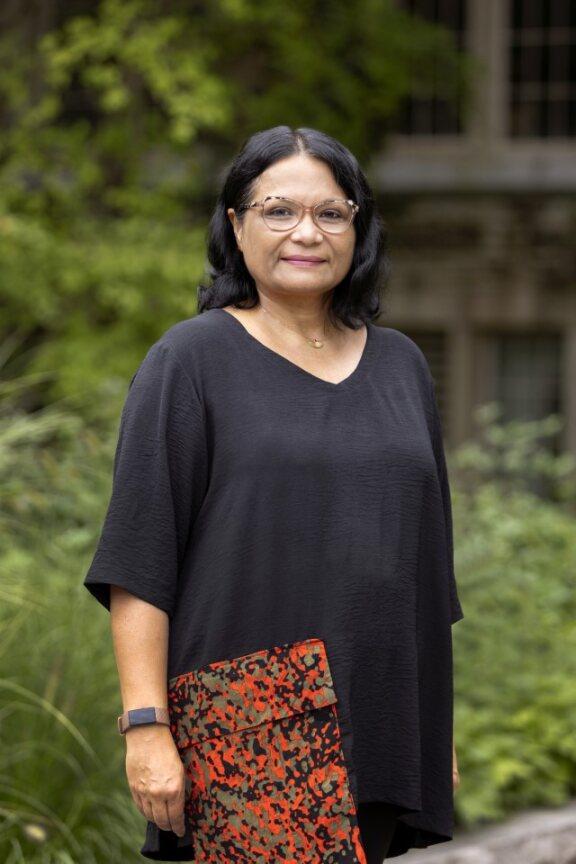Women in STEM: from an international student to a science academic
Professor Bipasha Baruah, originally from India, writes about how studying abroad in Canada opened up doors for her to pursue a career in academia in STEM
Share
I am presently a tenured professor in the gender, sexuality and women’s studies department at Western University in Canada, where I also hold the Canada research chair in global women’s issues.
I was born in India, educated in India and Canada, and I have had an academic and non-academic career in research and teaching spanning 12 countries on five continents, namely, Asia, Europe, Africa, North America and Latin America and the Caribbean.
In my current academic career, I would describe myself as an applied social scientist. But my academic trajectory has been anything but straightforward.
In high school, I did equally well in the natural sciences and the social sciences. I was interested in environmental issues, but since the field of environmental studies was just beginning in the early 1990s, I decided to study for a BSc in biology with a minor in chemistry. I had the vague intention of doing “something related to the environment” in my future career.
I retained my interest in the social sciences and humanities during my undergraduate degree, and when I completed my BSc, I found myself wanting to use “the other side of my brain,” for want of a better expression.
So I went on to pursue a master’s diploma in investigative journalism and mass communication. I was obviously not one of those people who knew very early on what they wanted to be when they grew up and that was OK.
After earning this graduate diploma in journalism, I realised that what I really wanted to do was combine my learning and skills in the natural sciences and social sciences in a way that would enable me to understand environmental issues from scientific, social, economic, cultural and political perspectives. And what better way of doing that than pursuing a master’s degree in the emerging interdisciplinary field of environmental studies?
My master’s degree in environmental studies took me to northern British Columbia, Canada, where I studied the human effects and outcomes of mercury poisoning on an Indigenous community that had mercury tailings dumped in its lake systems, by a multinational mining company, during the Second World War.
By the time, I carried out my master’s research in the mid- to late 1990s, standard scientific tests to prove evidence of mercury poisoning were not revealing any alarming results. But it was very obvious that even 50 years after the pollution of its lakes, the community had suffered enduring social, cultural, economic and health-related harms.
Completing my master’s degree enabled me to (finally) figure out what I wanted to be when I grew up, and I began to study an interdisciplinary PhD in environment studies.
Today, I use training from fields as diverse as biology, environmental studies, gender studies, international development and feminist economics to understand social, economic and environmental problems that lack simple solutions or straightforward policy fixes.
For the past 12 years, I have studied how climate change impedes gender equality and social justice. I haven’t let go of my training in the natural sciences. In fact, it is my early training in biology and chemistry combined with my later training in journalism and interdisciplinary social science that enables me to understand the social, economic, environmental and political challenges posed by climate change in nuanced and complicated ways.
Science, technology, engineering and mathematics (STEM) fields are essential to addressing the major global challenges of our time, be it global warming and the climate crisis, the effects on society of disruptive technologies such as automation, artificial intelligence, robotics and the internet of things, the possibilities and limits of biotechnology, or the prevention of future pandemics.
Based on my experience, I believe STEM training by itself, or in combination with social sciences and arts and humanities, will serve you well in more ways than I can write about in this blog.
